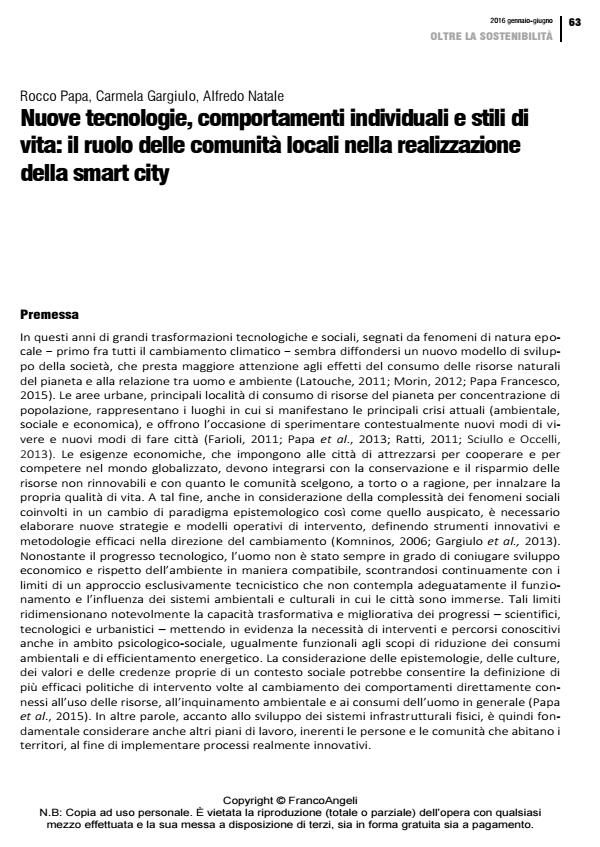Nuove tecnologie, comportamenti individuali e stili di vita: il ruolo delle comunità locali nella realizzazione della smart city
Titolo Rivista CRIOS
Autori/Curatori Rocco Papa, Carmela Gargiulo, Alfredo Natale
Anno di pubblicazione 2016 Fascicolo 2016/11
Lingua Italiano Numero pagine 10 P. 63-72 Dimensione file 1444 KB
DOI 10.3280/CRIOS2016-011006
Il DOI è il codice a barre della proprietà intellettuale: per saperne di più
clicca qui
Qui sotto puoi vedere in anteprima la prima pagina di questo articolo.
Se questo articolo ti interessa, lo puoi acquistare (e scaricare in formato pdf) seguendo le facili indicazioni per acquistare il download credit. Acquista Download Credits per scaricare questo Articolo in formato PDF

FrancoAngeli è membro della Publishers International Linking Association, Inc (PILA)associazione indipendente e non profit per facilitare (attraverso i servizi tecnologici implementati da CrossRef.org) l’accesso degli studiosi ai contenuti digitali nelle pubblicazioni professionali e scientifiche
The paper deals with demands of urban regeneration and local communities aspirations, drawing on the notion of smart city. It offers a trans-disciplinary methodological framework, mobilizing social and technology studies, to support the smart city as a new alliance between environmental sustainability and human activities. The paper is based on a research work carried out by the authors in Naples about life styles and energy consumption reduction strategies
Rocco Papa, Carmela Gargiulo, Alfredo Natale, Nuove tecnologie, comportamenti individuali e stili di vita: il ruolo delle comunità locali nella realizzazione della smart city in "CRIOS" 11/2016, pp 63-72, DOI: 10.3280/CRIOS2016-011006